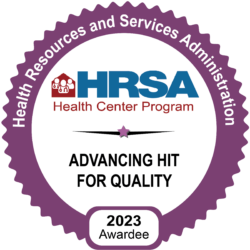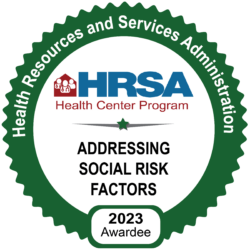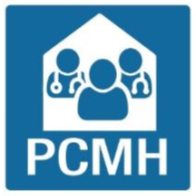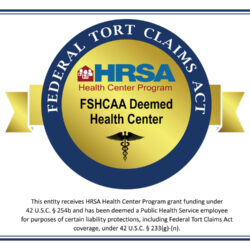by Reginald Dogan, Community Outreach and Events Manager
When people think of public safety, police officers, firefighters and first responders are first to come to mind.
All too often healthcare workers are overlooked, and outreach workers to the homeless aren’t even mentioned.
As a Federally Qualified Health Center, Community Health Northwest Florida provides quality healthcare for the underserved, underinsured and uninsured, including people who find themselves without a place to call home.
Across the country, National Health Center Week is raising awareness about the mission and notable accomplishments of health centers. Each day from Sunday, Aug. 7 through Saturday Aug. 13, the annual event highlights an aspect of health care, from pediatrics and patient care, to stakeholders and staff.
Monday was set aside to spotlight the homeless, a growing concern among the most disadvantaged in our community. The homeless suffer from poor health outcomes and disproportionately high hospital usage and health spending.
To better serve and reach the homeless, Community Health last year put Walter Arrington in charge as a Homeless Health Navigator.
Arrington spends almost every day in some way helping the transient population. Deep in wooded homeless encampments, along dusty railroad tracks, in the dark crevices of bridge overpasses, Arrington is always willing and able to extend a helping hand.
“I’m unique in that I work for a Federally Qualified Health Center doing what I do,” Arrington says. “Because of my lived experience, I fill a bunch of roles.”
Arrington’s primary role is making healthcare accessible to the homeless, or as he refers to: the “unhoused.”
In Escambia and Santa counties, officials estimate the number of homeless people at about 2,000. But some who work with the homeless suspect the actual number may be twice that. In 2021, Community Health provided health and wellness services to 5,226 people classified as homeless.
Most of the homeless live invisible lives, avoiding point-in-time counts. Others sleep in their car or “couch-surf”, making it difficult to pinpoint an accurate count.
Arrington occupies an office on Jackson Street but spends most of his days on the streets or at shelters following up with appointments and visiting encampments throughout the county, linking the homeless with services.
To help navigate the homeless through the healthcare world, Arrington handles medical case management, outreach services and peer support social work. He connects the homeless with shelters, working to make sure barriers are removed to gain access for their health and wellness needs.
Arrington is part counselor and comforter, a social worker and friend to every homeless person he encounters. He helps deal with their physical, mental and emotional issues, giving hope and help for those seeking jobs and permanent homes.
“A lot of times the social determinants of homelessness are because of healthcare issues, Arrington says. “I’m very grateful to Community Health for identifying this need and empowering me to really serve this population effectively.”
Because of Arrington’s work and connections, Community Health now weekly sends a full service mobile health unit to the Alfred-Washburn Center, a ministry that serves the homeless and underserved near Brent Lane and Palafox Road. It’s another step to remove barriers to ensure the less fortunate gets the healthcare they need.
At the start of National Health Center Week on a humid and cloudy Monday morning, Arrington and other Community Health Northwest Florida staff gave more than 200 backpacks with supplies to lines of homeless men and women at the Alfred-Washburn Center.
Afterward, Arrington drove a few yards down the road to a growing wooded encampment. Tents, tarps and plastic covered piles of makeshift beds, discarded furniture and plywood.
The roaming dogs immediately recognized his voice, as he called out names of the people to come out and get their backpacks supplies.
“Society is judged by how it treats its most vulnerable people,” Arrington says. “But by the grace, go I. We truly don’t know everybody’s story. They are somebody’s son, daughter, sister and brother.”
Not long ago, Arrington was that somebody.
For four years until 2018, Arrington lived on the streets in Pensacola and Fort Walton Beach, his hometown.
After a stint in the Marines, he couldn’t face his demons, needed back surgery, got divorced and began drowning his emotional and mental anguish in alcohol.
He slept under bridges and homeless encampments until he found solace in a low-barrier shelter in Fort Walton Beach.
It gave him a place to stay without the heavy-handed rules. The shelter helped him get the help he needed and find a job.
Arrington went back to school, got a degree in social work and did some work at the Alfred-Washburn Center, where he coincidentally had received services while homeless.
While serving on a homelessness task force, he met Chandra Smiley, CEO of Community Health. He drove her around homeless encampments, soup kitchens and service providers. He says Smiley realized a huge need for medical outreach that wasn’t happening among the homeless population.
It became clear that simple, medical needs could be met through Community Health. Smiley reached out Arrington to fill the role as homeless navigator in 2021.
“When we say we provide compassionate care to everyone in our community, we mean everyone,” Smiley says. “Having a Homeless Health Navigator on staff gives us two-way communication to really see the needs of the unhoused.”
Arrington believes his role has given more visibility to the good work Community Health does for the people they serve.
“Our Mission at Community Health is to provide health care for everybody and remove those barriers,” Arrington says. “If we can just go that extra mile, who knows the ripple effect that can create.”
Like this program? Thank 340B.
By purchasing medications at a lower cost through the 340B Drug Pricing Program, covered entities like ours pass the savings along to patients. So many of our unique and beneficial programs depend on 340B savings but these benefits are in jeopardy. LEARN MORE ABOUT 340B



